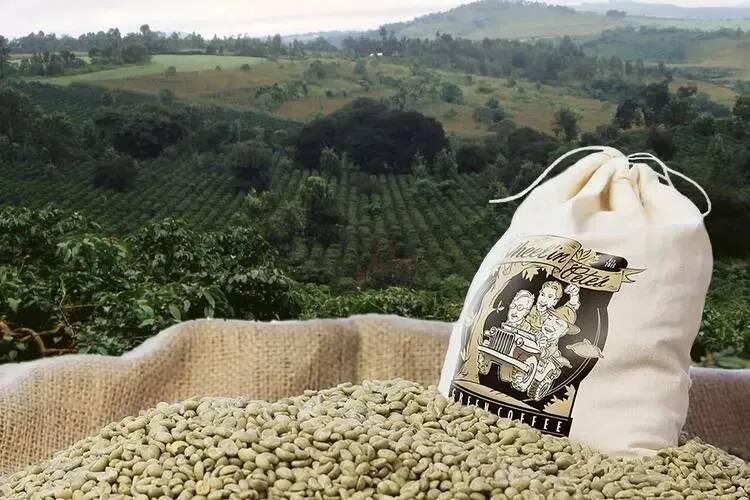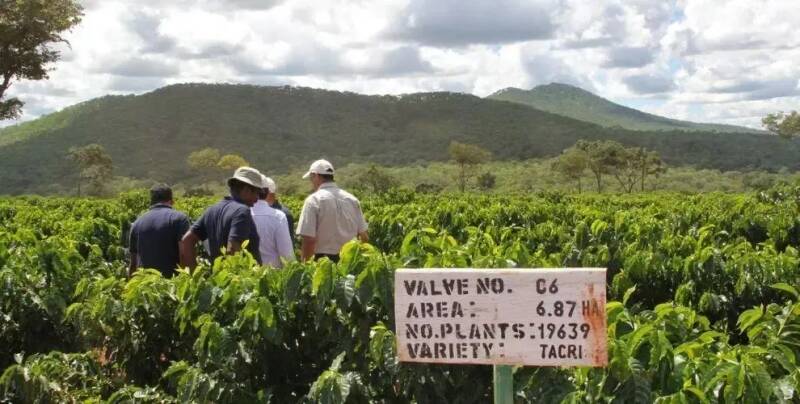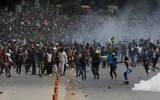Introduction to Mbeya, the coffee producing area of Tanzania, Africa
In Africa, there are many well-known coffee producing countries, such as Ethiopia, Kenya, Rwanda and Tanzania. Although Tanzania is not as famous as neighboring Kenya, it can also produce high-quality coffee.
Coffee first became a cash crop in Tanzania (formerly known as Tanganyika) during German colonial rule. At that time, Arabica coffee trees were mainly planted in Bukoba producing areas, but at that time, Arabica coffee trees were grown in a different way from the local Haya people, so the Haas were reluctant to replace food crops with coffee trees and developed slowly.

After the first World War, the management of the district was transferred to the British. They planted more than 10 million coffee seedlings in Bukoba, but they also clashed with the Hayans, usually uprooting them. Therefore, compared with the Chagga district of Tanzania, the coffee industry here has not developed significantly.
Until the independence of Tanzania in 1961, the focus was on the coffee industry. Since the 1990s, a series of reforms have been carried out in the coffee industry in Tanzania. Unfortunately, a kind of coffee withered branch disease spread at that time in the late 1990s, which greatly reduced the amount of coffee in northern Tanzania. Then the main growing areas were transferred to the south and Mount Kilimanjaro. Thanks to the country's topography and climate, coffee cultivation has become a major agricultural cash crop in Tanzania.

Tanzania is located in eastern Africa, south of the equator, adjacent to many African countries, is a land and sea country. The topography of the country is high in the northwest and low in the southeast, the eastern coast is a lowland, and the western plateau accounts for half of the total area of the country. The East African Rift Valley runs from east to south from Lake Malawi, with Mount Kilimanjaro, the highest peak in Africa.
Due to its proximity to the equator, the eastern coast and inland lowlands have a savanna climate, while the western inland plateau has a tropical mountain climate, with an annual average temperature of 21 ℃-26 ℃. Although the country has less rainfall, with less than 1000 millimeters in 80 per cent of the region, Tanzania has many rivers and lakes and is rich in hydropower resources.
Coffee cultivation in Tanzania is currently divided into nine producing areas, with the relatively well-known ones being Kilimanjaro, Arusha, Ruvuma, Mbeya, Tarime and Kighoma. In Tanzania, 90 per cent of coffee is produced by 450000 small farmers, while the other 10 per cent comes from larger estates, so it is dominated by cooperatives.
Among them, Kilimanjaro ("Kilima" means mountain, "Zaro" means shining) is the most famous. Kilimanjaro is the highest mountain on the entire African continent, mainly composed of three extinct volcanoes, Kibo, Mavenz and Sheila, up to 5895 meters. Coffee is grown at an altitude of 1050-2500 meters.
High enough altitude, volcanic soil, and pure snow-melting water are the most suitable areas for growing coffee. On the front street, there is a washed iron pickup from the Kilimanjaro area, which tastes soft and sour, with citrus, berry, honey and nut flavors, soft tea taste and overall balance.
In addition, there are many coffee producing areas with good quality, such as Mbeya, located around the city of Mbeya in southwestern Tanzania, is the main agricultural capital and trade center in the southwest of the country.
There are many highlands and basins, there are volcanoes such as Mount Lungui, low, hot and dry here, but the highlands where coffee is planted are cool and humid, with an altitude of about 1660 meters above sea level, and fertile soil given by volcanic ash, and there are lakes to the west and southeast, which are rich in water resources, so they can produce high-quality coffee, and there are many well-known cooperatives here, such as the Eyinger Agricultural Marketing Cooperative (Iyenga AMCOS).
Founded in 2003, Iyenga AMCOS collects coffee mainly in the Mbeya region and works with more than 500 farmers a month. And it has a good influence in the local area, all because of advocating democracy very much. All leaders are democratically elected to encourage young people and women to participate in coffee events, collaborative activities, etc., and there are teams responsible for coffee cultivation and processing to ensure quality.
Important Notice :
前街咖啡 FrontStreet Coffee has moved to new addredd:
FrontStreet Coffee Address: 315,Donghua East Road,GuangZhou
Tel:020 38364473
- Prev

Don't buy it! President withdraws tax increase Kenyan people continue to march
According to several Kenyan media reports, on July 16, Kenyan people once again took to the streets to continue demonstrations against the Ruto government. Moreover, in addition to the capital Nairobi, this demonstration was also held in Mombasa and Nakuru.
- Next

Ridiculous! Do you have to pay a deposit before taking up a job during the summer vacation in a cafe?!
▲ Click to pay attention| Daily Boutique Coffee Culture Magazine Coffee Workshop recently reported by Guangdong Today that 14 students of different ages went to a local coffee shop in Meicheng, Meizhou to apply for summer jobs. As a result, they were charged a deposit by the owner before they could go to work to earn pocket money. Students told reporters that they were in social affairs
Related
- What grade does Jamaica Blue Mountain No. 1 coffee belong to and how to drink it better? What is the highest grade of Blue Mountain coffee for coffee aristocrats?
- What are the flavor characteristics of the world-famous coffee Blue Mountain No. 1 Golden Mantelin? What are the characteristics of deep-roasted bitter coffee?
- Can I make coffee a second time in an Italian hand-brewed mocha pot? Why can't coffee be brewed several times like tea leaves?
- Hand-brewed coffee flows with a knife and a tornado. How to brew it? What is the proportion of grinding water and water temperature divided into?
- What is the difference between Indonesian Sumatra Mantinin coffee and gold Mantinin? How to distinguish between real and fake golden Mantelin coffee?
- What does bypass mean in coffee? Why can hand-brewed coffee and water make it better?
- Unexpected! Ruixing Telunsu lattes use a smoothie machine to foam milk?!
- % Arabia's first store in Henan opens into the village?! Netizen: Thought it was P's
- Does an authentic standard mocha coffee recipe use chocolate sauce or powder? Mocha Latte/Dirty Coffee/Salty Mocha Coffee Recipe Share!
- What is the difference between Vietnam egg coffee and Norway egg coffee? Hand-brewed single product coffee filter paper filter cloth filter flat solution!

